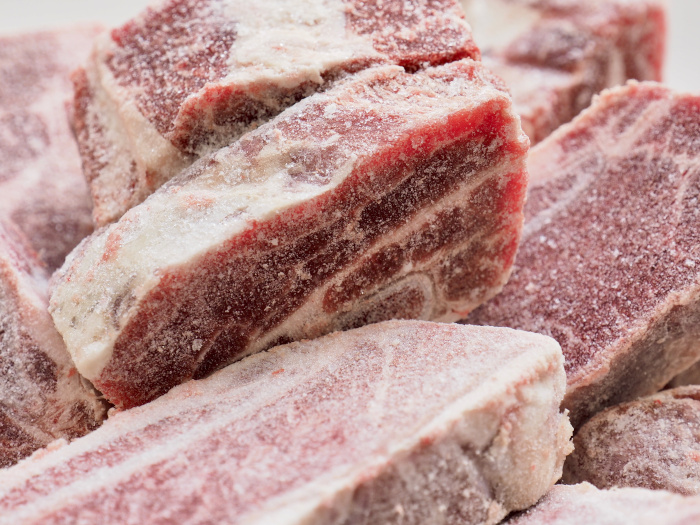It is important to freeze meat as it spoils easily. Freezing meat is a great way of preserving it. Not just that, you can store it for days together by keeping it in the freezer where the temperature is below 0°F. This further prevents the possibility of any foodborne illnesses. But what if you were to refreeze meat? Would it be safe to do so? Let’s find that out and other related queries by going through our detailed FAQ. [1]
Can You Refreeze Meat?
You may decide to cook meat one day but for some unforeseen event have to cancel the plans of going ahead with it. This means that you will have to refreeze it. According to the United States of America’s Department of Agriculture (USDA), it may be safe to refreeze meat that was previously thawed in the refrigerator but it could result in the loss of its quality. This is due to the loss of moisture that takes place during the thawing process. When thawing frozen food, especially meat, it is best to plan in advance and do it in the refrigerator where the constant temperature is 40 °F or below. Moreover, meat can be refrozen only if it is thawed while being stored in the refrigerator and if it is not left outside for more than 2 hours. Additionally, it must be done within 3-4 days of thawing it in the refrigerator. Failing to do so, could contaminate it and render it harmful for consumption. [2]

While refreezing of the meat can be done safely, the quality of it could suffer. Photo Credit: Shutterstock
What Are The Different Methods Of Thawing Meat Safely?
Frozen meat needs to be thawed, or in other words defrosted, before it is cooked. How you thaw your meat also determines whether it can be refrozen or should be cooked immediately. There are three ways of thawing – cold water, refrigerator, and microwave thawing. Out of all the three methods, refrigerator thawing is perhaps the safest way to defrost meat. Once the meat is thawed this way, it can be cooked within 2-3 days. Coldwater thawing will entail you to place the meat in a plastic bag and hold it under cool running water. Meat that’s thawed this way or in a microwave should be cooked right away and not refrozen.
What Are The Effects Of Repeatedly Thawing And Refreezing The Meat?
According to a 2015 study published in the Food Chemistry Journal, repeated cycles of freezing and thawing has the potential to discolor the meat and change its odor as well as cause the moisture content in it to decline. This could further render the meat tasteless. The same conclusion was also reached in a study published in the Korean Journal for Food Science of Animal Resources. Freezing and thawing the meat more than once can also raise the oxidation process of the meat’s fat and protein content. It is because of this repeated oxidation process that the quality of the meat suffers- the juiciness and the tenderness of the meat get affected. [3] [4]
Do Different Types of Meat Respond Differently To Being Frozen Multiple Times?
Research shows that it is not just the number of times that meat is thawed and refrozen, but also the type of meat in question that determines how it will respond to multiple refreeze cycles. A 2018 study published in the Meat Science Journal showed when pork loin was aged prior to freezing it, it could help retain the tenderness of the meat. However, another study published in the same journal showed that while freezing and thawing the pork loin may not affect the tenderness of the meat, it is likely to decline its juiciness. [5] [6]
Surprisingly, with beef, a 2014 study published in the Comparative Study Journal suggested that aging, freezing, and thawing meat kept the freshness and tenderness of the meat alive when compared to meat that was aged but not frozen. What also seems to work with most red meat is that if frozen for a shorter period of time, its quality won’t suffer as much. As far as white meat is concerned, a study published in the Food Chemistry Journal showed that when a chicken breast was thawed and frozen several times, changes in its color and juiciness were observed. [7] [8]
To sum it up, meat should be consumed fresh as far as possible. But if you have to refreeze it, ensure that it is thawed properly in a refrigerator. While it may be safe to refreeze meat, doing it repeatedly could alter its smell, color, tenderness, and juiciness. This also depends on the type of meat in question. But, if done properly, meat can be refrozen, and consuming it won’t cause any potential health risks.
